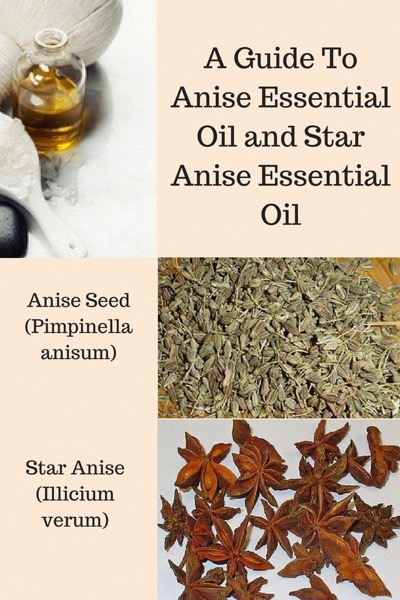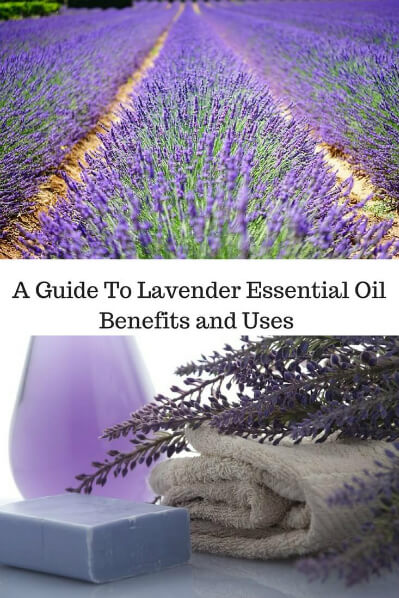- Home
- Essential Oil Profiles
- Anise Essential Oil
As an affiliate with Bookshop, Amazon, and other programs, I may earn revenue from qualifying purchases through affiliate links. This does not affect the price you pay. Privacy Policy / Disclosures. This site is for educational purposes only.
Search this site:
Guide To Anise Essential Oil and Its Benefits and Uses
The task of anise essential oil (Pimpinella anisum) is "to make the conscious mind aware, even if protesting, that there is a conductor of the universe, and we are all part of the orchestration," writes aromatherapist Valerie Ann Worwood in Aromatherapy For the Soul. She also states the emotional benefits of anise are to encourage upliftment, stimulation, fearlessness, harmony, and balance and to dispel timidity.

Basic Anise Facts
The essential oil of anise is also known as anise seed or aniseed.
Another essential oil called star anise (Illicium verum) comes from a different plant. Even though the two oils are from different plants, they have a similar scent and some of the same properties. This profile covers both oils.
Aniseed plant family: Apiaceae/Umbelliferae
Star anise plant family: Schisandraceae/Illiciaceae
Aniseed production: Steam distilled from the seeds of the plant, which is an annual grassy herb.
Star anise production: Steam distilled from the dried fruit/seeds of the plant, which is an evergreen tree.
Aniseed aroma: Licorice-like, rich, sweet
Star anise aroma: Sharp and licorice-like
Perfume/Aromatic note: Top to middle.
Is anise safe to use during pregnancy? No, and do not use while breastfeeding. (Applies to both oils.)
Is anise essential oil safe for children? Do not use either oil with children under age 5, according to Essential Oil Safety.
Cautions: Essential Oil Safety recommends not using aniseed or star anise if you have/had an estrogen-dependent cancer or have endometriosis. Advanced Aromatherapy states not to use anise if you have a tumor. These cautions arise because both oils contain anethole, which may have an estrogen-like effect.
Anise may cause skin irritation, especially if the oil becomes oxidized from exposure to heat, light, and air.
Main components:
Aniseed
- (e)-anethole 75.2–96.1%
- (+)-limonene trace–4.9%
- estragole 0.3–4.0%
- anisyl alcohol 0–3.5%
Star Anise
- (e)-anethole 71.2–91.8%
- foeniculin 0.5–14.5%
- estragole 0.3–6.6%
- (+)-limonene 0.7–5.0%
Source: Essential Oil Safety, 2nd Edition
Anise Aromatherapy Benefits
Aromatherapy: A Complete Guide to the Healing Art: Anise may help relieve indigestion, coughing, muscle spasms, and menstrual cramps. The scent is both stimulating and calming, improving emotional balance. Avoid the oil if you have problems related to too much estrogen.
Essential Oils & Aromatherapy for Dummies: Anise may help improve digestion, relieve gas, reduce stress, and reduce menopausal symptoms. The scent may repel flies and may act as an aphrodisiac.
The Complete Book of Essential Oils and Aromatherapy: Aniseed may help relieve coughs, excessive mucous, flatulence, intestinal spasm, indigestion, digestion-related migraines and headaches, and nervous digestive tract conditions.
The Encyclopedia of Essential Oils (updated
edition): Both anise oils may help relieve muscle aches and pains,
coughs, colds, flatulence, indigestion, and digestive cramps.
Advanced Aromatherapy: The Science of Essential Oil Therapy: Anise calms the nervous system, minimizes overexcitement, and has stabilizing effects after a hangover. The oil may also help bring on missing menstrual periods.
Essential Oils Desk Reference: The fragrance "opens emotional blocks and recharges vital energy."
Aromatica: A Clinical Guide to Essential Oil Therapeutics, Volume 2: Indications for aniseed essential oil include indigestion with flatulence, appetite loss, nausea, spasmodic coughs, or amenorrhea (absence of menstruation).
The Complete Guide to Aromatherapy, Third Edition, Vol. 1: Traditional Chinese Medicine considers aniseed warming and drying. The oil has a strong affinity with the Earth element and can eliminate damp and help disperse cold phlegm.
Essential Oils Handbook for Aromatherapy Practice: In ayurvedic aromatherapy, anise is pungent and bitter. It controls vata and kapha and increases pitta.
Aromatherapy and Subtle Energy Techniques: Anise clears and cleanses the subtle bodies to allow the easy movement of energy. Especially useful for the sixth and seventh chakras to promote intuition and clear away old thought forms so you can receive spiritual information.
The Essential Guide to Aromatherapy and Vibrational Healing: Anise helps prevent bad dreams. Put a few drops on a tissue, place it under your pillow, and set the intention to have good dreams. The oil also promotes mental clarity and active listening skills.
Mixing Essential Oils for Magic: Anise is powerful for divination and dreamwork and aids in developing psychic abilities. The oil stimulates the mind, heightens awareness, attracts spirits, and connects with other realms. Star anise is instrumental for increasing psychic abilities and supporting clairvoyance.
Anise Essential Oil Uses and Blends
You can diffuse anise essential oil using an aromatherapy diffuser or make a massage oil by adding 3 to 5 drops of the essential oil to 1 tablespoon of carrier oil.
For a pick-me-up diffuser blend:
- 3 drops star anise essential oil
- 2 drops lemon essential oil
- 1 drop peppermint essential oil
You can add this same blend to two teaspoons of carrier oil and massage on your abdomen to help calm digestive upset or a queasy stomach. Source: Plant Therapy
Suggested uses from The Complete Aromatherapy and Essential Oils Handbook for Everyday Wellness:
- For respiratory complaints that include mucous, use an inhalation or massage blend with 0.5% star anise essential oil.
- To ease flatulence or the pain of indigestion, use a hot compress made with 3 drops star anise.
Pain Relief Balm
- 2 tablespoons beeswax pellets
- 4 tablespoons carrier oil
- 7 drops star anise essential oil
- 5 drops lavender essential oil
- 3 drops rosemary essential oil
- In a double boiler, melt the beeswax and carrier oil.
- Remove from heat and let cool slightly.
- Add the essential oils to the mixture. Stir well.
- Pour mixture into a container. Let solidify.
To use: Rub a small amount of the balm on painful areas.
Source: Penny Price
Photo Credit: Aniseed [Public domain], via Wikimedia Commons and Star Anise By H. Zell [CC BY-SA 3.0], from Wikimedia Commons




